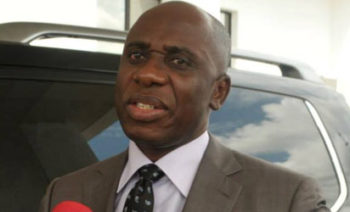
It is no news that the maritime industry in Nigeria is endowed with enormous possibilities that are waiting to be maximised. Yet the industry is faced with many challenges that appear insurmountable primarily owing to absence of bespoke government policies. One of the major problems faced by stakeholders in the industry is the difficulty in accessing funds, considering that many Nigerian banks lack understanding of the peculiarities of the maritime sector. On account of this, stakeholders have pushed for alternative financing strategy to aid the development of the industry. Many have pushed for the establishment of a maritime development bank as a catalyst for the growth and development of the industry. The closest Nigeria got to in this regard was the Regional Maritime Development Bank, Abuja promoted by the Maritime Organisation of West and Central Africa (MOCWA). Nigeria, being the host country, was expected to provide the take-off grant. Since 2008 when the idea of the bank was conceived, the project had been on hold until 2016 when the current Minister of Transport, Mr. Rotimi Amaechi announced Nigeria’s disinterest in hosting the bank. That announcement dashed the hopes of stakeholders who had looked forward to a bank tailored to understand the operations and complexities of the maritime industry and serve it accordingly.
The need for a specialised bank with competence to cater to the need of the maritime industry cannot be over-emphasised. Nigeria has been divinely situated strategically with huge maritime potentials. However the divine endowments have not translated into wealth for Nigerians. Local shippers have become highly disadvantaged in their country because they lack access to funds despite the establishment of the Cabotage Vessel Financing Fund, CVFF, with N100billion liquidity domiciled in the Central Bank of Nigeria [CBN]. Thus, it is easier for foreign shippers to source funds abroad, invest locally and dominate the industry at the expense of local shipping lines.
The recent forecast released by the Nigerian Maritime Administration Agency [NIMASA] shows that the industry is projected to grow at between 2-5% in 2018/2019. But in actual fact the growth forecast is only a minute fraction of the inherent potential of the maritime industry in Nigeria. The non-availability of funds especially for local businessmen has been a major debilitating factor in advancing the sector. Diverse subsectors of the industry have remained underdeveloped owing to this perennial difficulty. Many business owners cannot access loans from the conventional commercial banks and when they do, the interest rates are outrageous and simply depressing.
Respite came last year when Hon. Mohammed Gololo sponsored a bill for an Act to establish the Nigerian Marine Development Bank. And in response to the clamours by stakeholders to utilise the N100 billion cabotage fund as seed capital for the take-off of the bank, the House of Representatives through the Chairman of the House Committee on Maritime Safety, Education and Administration, Hon. Umaru Bago, recently communicated the readiness of the house to accelerate the enactment of the act to set up the bank. He also stated that N55 billion would be drawn from the cabotage fund to commence the bank.
As elating as this appears there is need for thorough planning and proper input from stakeholders in the industry. It is commendable that the chairman of the house committee has hinted of plans to organise a stakeholders’ roundtable next month in order to garner inputs from practitioners. The importance of such roundtable cannot be overemphasised. Many laudable initiatives of this manner have been stunted for lack of professional and expert inputs. A notable example is the Cabotage Vessel Financing Fund that has not added significant value to the industry after 13 years of establishment. We hope that the national assembly will be truly committed to this noble cause and save stakeholders the uncertainty that has characterised the industry. We also expect the lawmakers and stakeholders in the industry to extract the support of the executive in order to ensure that the take-off of the bank is not stalled when the bill is eventually passed into law.
Access to funds is an essential ingredient in developing any industry or sector. There is no doubt that the marine development bank will usher a new era in the maritime industry in Nigeria. It now behoves on all stakeholders to join hands with the national assembly to ensure that the bill is passed in time. The longer the bill stays at the national assembly the more underdeveloped Nigeria’s maritime sector will be. Nonetheless, it is more important for the final version of the bill to be one that is truly representative of the aspirations of stakeholders in the industry. Our hope is to see this bill passed and signed into law before the end of the 8th national assembly.
Copyright Ships & Ports Ltd. Permission to use quotations from this article is granted subject to appropriate credit given to www.shipsandports.com.ng as the source.
